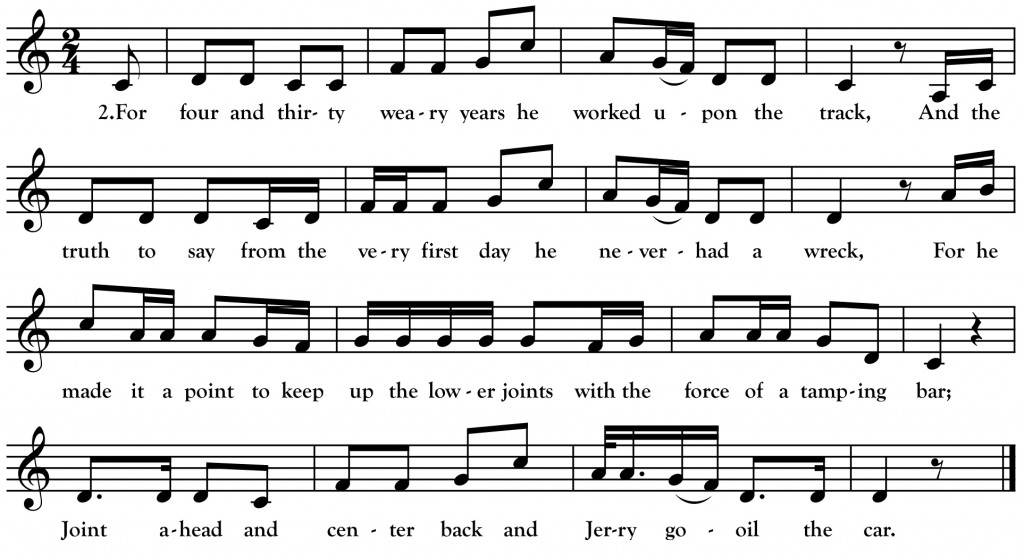The Falling of the Pine
Come, all young men a-wanting of courage bold undaunted,
Repair unto the shanties before your youth’s decline,
For spectators they will ponder and gaze on you with wonder,
For your noise exceeds the thunder in the falling of the pine.
The shanty is our station and lumbering our occupation,
Where each man has his station, some for to score and line,
It is nine foot of a block we will bust at every knock,
And the wolves and bears we’ll shock at the falling of the pine.
When the day it is a-breaking from our slumbers we’re awakened,
Breakfast being over, our axes we will grind,
Into the woods we do advance where our axes sharp do glance,
And like brothers we commence for to fall the stately pine.
For it’s to our work we go through the cold and stormy snow,
And it’s there we labor gayly till bright Phoebus does not shine;
Then to the shanties we’ll go in and songs of love we’ll sing,
And we’ll make the valleys ring at the falling of the pine.
When the weather it grows colder, like lions we’re more bolder,
And while this forms grief for others, it’s but the least of mine,
For the frost and snow so keen, it can never keep us in,
It can never keep us in from the falling of the pine.
When the snow is all diminished and our shanty work all finished,
Banished we are all for a little time,
And then far apart we’re scattered until the booms are gathered,
Until the booms are gathered into handsome rafts of pine.
When we get to Quebec, oh, me boys, we’ll not forget,
And our whistles we will wet with some brandy and good wine;
With fair maidens we will boast till our money is all used,
And, my boys, we’ll ne’er refuse to go back and fall the pine.
____________________________________________________
In 1922, Minnesota singer Mike Dean printed his version of this song (text only) in his songster The Flying Cloud along with the subtitle “Square Timber Logging.” The next year, he sang it for collector Franz Rickaby who transcribed Dean’s melody and noted the singer’s story behind the song. Dean said the song came from the Georgian Bay region of Ontario and dated back to a time (pre-1870) when “shanty boys” squared off the logs in the woods by axe* before binding them into rafts and driving them down river to Quebec City. From Quebec, the timber was often shipped out the St. Lawrence Seaway and over the ocean to Liverpool. Collectors who found other versions of The Falling of the Pine (in Maine, Pennsylvania, Michigan and Ontario) noted that it is likely one of the oldest songs to come out of the lumber camp tradition and that it may date to as early as 1825. A fragment collected in Ontario begins, interestingly, “your Irish hearts are wanton.”
The melody above comes not from Rickaby’s 1923 transcription but from my own 2012 transcription based on the recently discovered 1924 recording of Dean’s singing made by Robert Winslow Gordon. Dean’s melody on the Gordon recording is considerably different from Rickaby’s transcription taken down just 14 months previous! Part of the reason is likely some bias in Rickaby’s assumptions about what the “right” notes were. Dean’s singing on the Gordon recording also shows him using a lot of melodic variation between different performances of the same song (two songs were recorded twice on the Gordon cylinders) in addition to quite a bit of melodic variation between verses within songs—a hallmark of a great traditional singer.
Transcription note: Dean, like many traditional singers, makes occasional use of “in between” notes and I mark two of his slightly raised pitches with arrows in the above transcription.
*“Scoring” and “lining” were part of the squaring process.
_________________________________________________
More detailed information on this song from the Traditional Ballad Index


